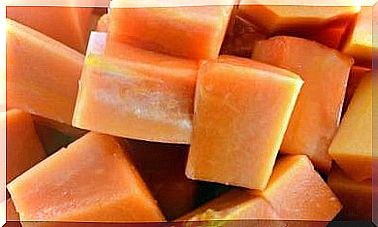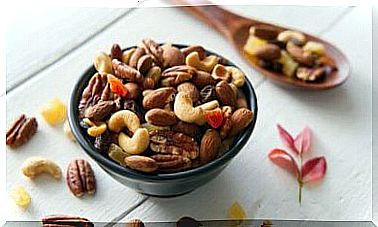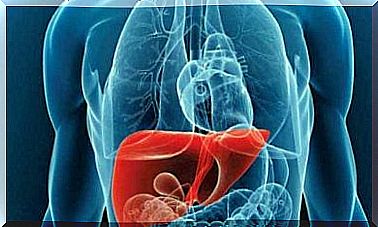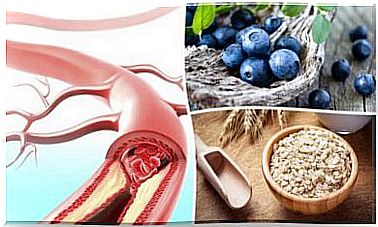Maltodextrin And Its Uses
Do you know what maltodextrin is? And are you informed about the health effects of its consumption? This article will tell you everything you should know about it.

Maltodextrin is a carbohydrate that is often found in supplements intended for athletes. In addition, it can also be found in processed products. It belongs to the group of high glycemic index sugars. Sometimes it can act as a thickener and is a commonly used ingredient in manufactured foods.
For this reason, you should know how it can affect your body and whether consuming it is safe for your health. In this article we will tell you about maltodextrin and its uses.
What is maltodextrin used for?
Maltodextrin has different uses depending on the product. In highly processed foods, it acts as a thickener. This ingredient improves the organoleptic properties of many foods.
In addition, this sugar is also often found in sports drinks to delay the onset of fatigue. According to a study published in the Journal of Strength and Conditioning Research, consuming maltodextrin during exercise stimulates glycogen resynthesis.
Maintaining adequate levels of these nutrient stores will reduce fatigue and improve performance. Glycogen is a type of glucose reserve that the liver can use when it needs to increase energy production.
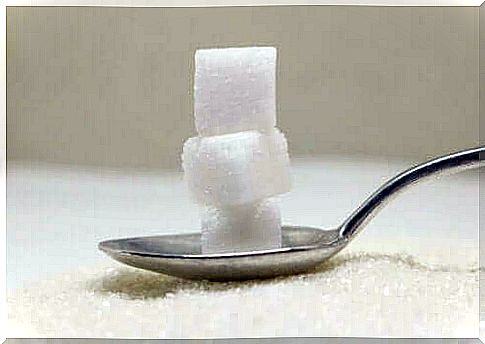
How is maltodextrin obtained?
Usually maltodextrin is a white soluble powder. We can get it from various foods such as rice, corn, and wheat.
In order to produce this ingredient, the foods mentioned must be subjected to an industrial process that changes their nutritional properties. First, the starchy foods are cooked at high temperatures. Then manufacturers add enzymes that accelerate their breakdown. Finally, they go through a hydrolysis process that creates maltodextrin.
The end product has an energy intake of 4 kilocalories per gram, just like any other carbohydrate. However, what sets some sugars apart from others is definitely their glycemic index (GI). This is a food’s ability to raise blood sugar levels.
In this sense, maltodextrin has a higher GI than table sugar and puts a strain on the pancreas. This can lead to isulin problems.
Is This Ingredient Safe For Our Health?
Although the Food and Drug Administration (FDA) deems maltodextrin safe, its effects on people with sedentary lifestyle are debatable. There is ample scientific evidence that excessive carbohydrate intake increases the risk of metabolic disorders.
In addition, research published in the journal Nutrients has linked the intake of maltodextrin and other food additives to changes in gut microbiota. This process increases systemic inflammation in the body, and with it the occurrence of complex and chronic diseases.
However, this is different for athletes. Experts recommend that athletes consume carbohydrates regularly to replenish the nutrients they lose during exercise. This practice reduces the incidence of muscle injuries.
One of the goals of diet in exercise is to replenish glycogen stores. And athletes have to consume carbohydrates to do this. This is the result of a study also published in the journal Nutrients .
Contraindications to maltodextrin
People with diabetes or metabolic problems should avoid consuming sugars with high glycemic indexes. Otherwise, it will affect their health. According to experts, patients with these conditions respond better to a low-carbohydrate diet than to the controlled consumption of this type of carbohydrate.
The experts also state that people suffering from intestinal dysbiosis should not consume additives such as maltodextrin on a regular basis. Since they are able to alter the microbiota and promote bacterial growth in the small intestine, they lead to pathological conditions.
Substitutes for maltodextrin

The food industry often uses substitutes for maltodextrin to ensure adequate organoleptic properties in food. The most common ones are sugar, honey, and molasses.
However, this does not mean that these substitutes are healthier than maltodextrin itself. In fact, the experts advise against their regular consumption. The best and most practical is to regulate and reduce your carbohydrate intake to improve your health. This is especially true for people with a sedentary lifestyle.
It is different for athletes, as sugar can be the main substrate for energy production. However, athletes also need to monitor their intake to ensure that the effects do not become harmful.
A common food additive
As you can see, maltodextrin fulfills many functions in the food industry. However, it is in no way beneficial to health. In fact, it can even negatively affect them.
You may not need to limit your consumption of maltodextrin completely. However, you should be aware of the products that contain this ingredient so that you do not consume it regularly. To determine if a product contains maltodextrin, you can simply refer to the food labels.
However, if you’re an athlete, you may be able to benefit from this carbohydrate, especially if it’s added to your sports drinks. We hope that after reading our article you are better informed about maltodextrin and its uses. However, if you have any doubts, it is best to consult a nutritionist.



